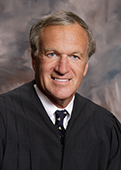Disenrollment is predominately about race, and money, and an "individualistic, materialistic attitude" that is not indigenous to tribal communities.
Because many tribes have maintained the IRA’s paternalistic and antiquated definition of “Indian” vis-a-vis blood quantum (as discussed in "An Essay on the Federal Origins of Disenrollment"), tribal membership has largely become “an explicitly racial conception of Indian identity.” Suzianne D. Painter-Thorne, If You Build It, They Will Come: Preserving Tribal Sovereignty in the Face of Indian Casinos and the New Premium on Tribal Membership, 14 Lewis & Clark L. Rev. 311 (2010).
The racial construct has worked well for disenrollment as "American Indians have one of the highest rates of interracial marriage in the U.S." Gosia Wozniacka, Disenrollment leaves Native feeling 'culturally homeless', Associated Press, Jan. 21, 2014. Indeed, Indians of any quantum (defined as "portion") of Indian blood are by federal design, multi-racial. In addition, "many Native Americans don’t live on reservations, speak Native languages or 'look' Indian, making others question their bloodline claims." Id. In those illustrative ways, Indian conceptions of both race and class converge, with tribal classism also catalyzing disenrollment.
In turn, tribal officials who wish to target political foes or large swaths of politically weak or unpopular members, can “voluntarily invoke race-based definitions of ‘Indian’ [to] narrow the pool of tribal members, perhaps in an effort to limit gaming revenue and federal dollars to [those targeted] tribal members.”Painter-Thorne, supra. These disenrollment stories bear this out. See e.g. Liz Jones, 'We'll Always Be Nooksack':Tribe Questions Ancestry of Part-Filipino Members, NPR/KUOW, Dec. 16, 2013; Joanne Barker, The True Meaning of Sovereignty, New York Times, Sept. 16, 2011. 
The “forced transition to a cash economy” has likely played a large part in the dramatic spike in disenrollment as well. Jana Berger & Paula Fisher, Navigating Tribal Membership Issues, Emerging Issues in Tribal-State Relations 61, 66 (2013). Prior to the recent disenrollment epidemic, which is estimated to have already vanquished over 11,000 Indians, tribal governments were very inclusive, frequently wanting to have large "membership" numbers. Aside from a greater amount of funding from federal agencies relative to increased tribal membership, from a practical standpoint tribal governments recognized that “there is strength in numbers.” Id.
But over the last couple decades, as tribes became more dependent on the U.S. economic free-market system, primarily through gaming entrepreneurship, disenrollment began to rear its ugly head. According to Charles Wilkinson,
Just as federal education practices reverberated throughout tribes, so too did the forced transition to a cash economy. The concept of sharing, integral to Indian societies, did not jibe well with the individualistic, materialistic attitude that drove the nation’s economic system. As one Navajo stated, “When a relative needed help, you helped them out. When you needed something else, you could rely on a relative to help out, it all worked out in the long run. With money it doesn’t work anymore, now the relative with the money is expected to help out, what is needed for most everything is money and the poor relatives never have any.”
Blood Struggle: The Rise of Modern Indian Nations 54 (2006).
As Professor David Wilkins observes, tribal communities historically used ceremony and prayer to resolve intra-tribal tension or conflict; because traditionally speaking, "you don't cast out your relatives." Wozniacka, supra. But today, when the political going gets rough in tribal communities, the individualistic, materialistic Indian attitude that Professor Wilkinson describes, increasingly leads to disenrollment of one's own relatives--instead of towards any holistic or indigenous values-based solution.
Galanda Broadman is an American Indian owned firm dedicated to advancing tribal legal rights and Indian business interests. The firm represents tribal governments, businesses and members in critical litigation, business and regulatory matters, especially in the areas of Indian Treaty rights, tribal sovereignty, taxation, commerce, personal injury, and human/civil rights.




 The recent voting record of the still-seated Washington State Supreme Court Justices in Indian cases, reveals some patterns for the justices:
The recent voting record of the still-seated Washington State Supreme Court Justices in Indian cases, reveals some patterns for the justices:




 Gabe will speak from two essays recently published by his law firm: “
Gabe will speak from two essays recently published by his law firm: “




